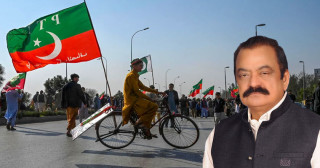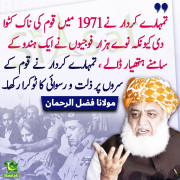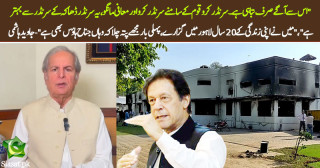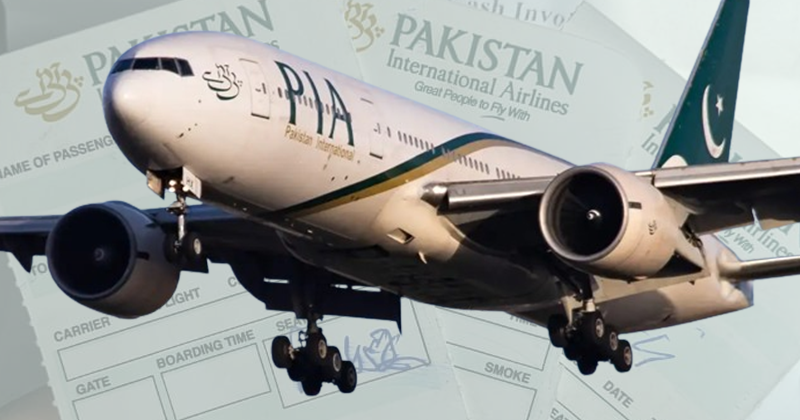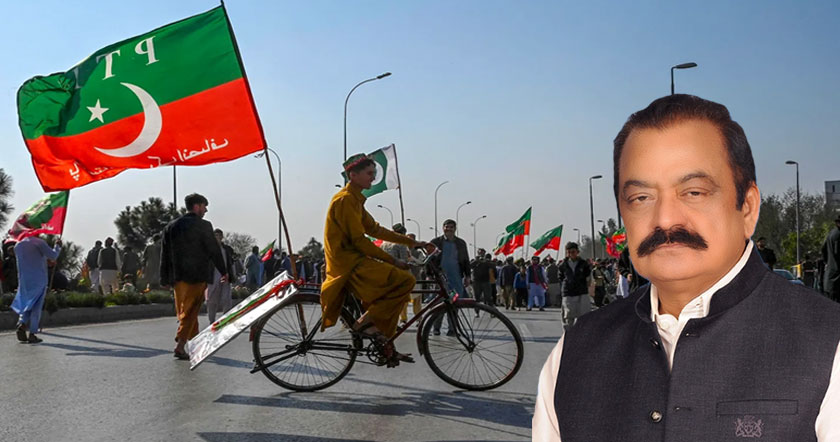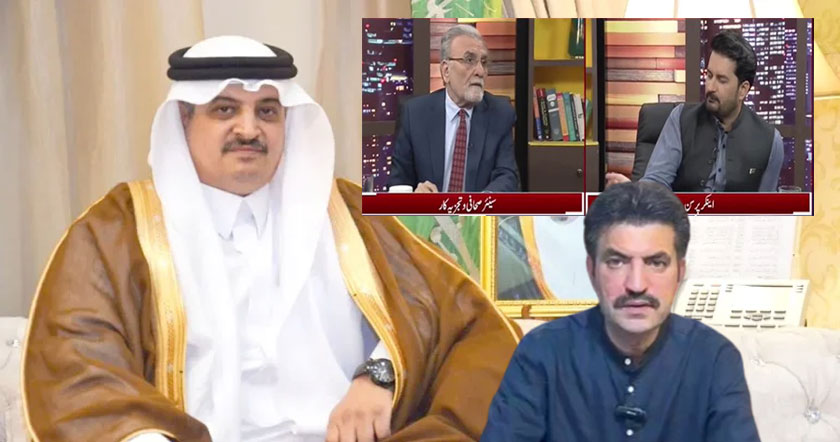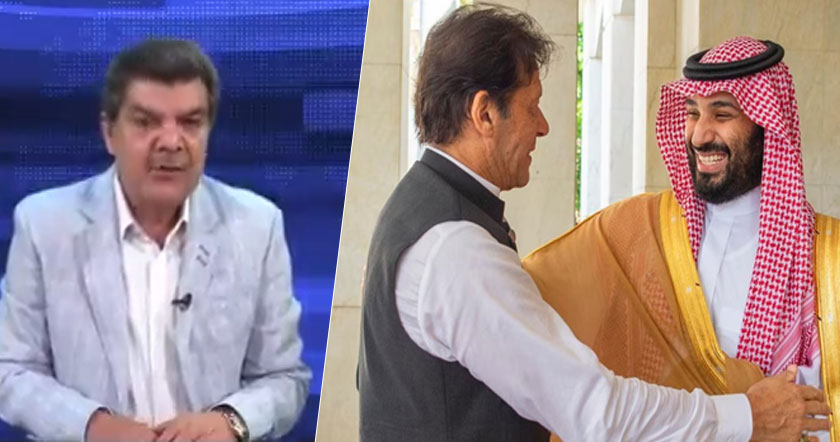Before you read the main article I would like to refresh Siasat.pk members on Some historical facts.....
The Bosnian War or the War in Bosnia and Herzegovina was an international armed conflict that took place in Bosnia and Herzegovina between April 1992 and December 1995. The war involved several sides. The main belligerents were the forces of the Republic of Bosnia and Herzegovina and those of the self-proclaimed Bosnian Serb and Bosnian Croat entities within Bosnia and Herzegovina, Republika Srpska and Herzeg-Bosnia. Republika Srpska and Herzeg-Bosnia enjoyed substantial political and military backing from Serbia and Croatia respectively.
Seven periods of the Yugoslav crisis
Period One (January to July, 1990): In this period, all the ethnic elements in the country began to explore new possibilities, often contradictory.
Period Two (August 1990 to May 1991): In this period the contradictions between competing goals moved the situation from tension to violence.
Period Three (May 1991 to February 1992): This was the period when true open warfare began, as the Serbs resisted the Slovene and Croatian independence movements.
Period Four (March 1992 to December 1992): In this period the arena of open war shifted from Croatia to Bosnia, where the province split along ethnic lines.
Period Five (January 1993 to January 1994): During this year, all sides in Bosnia pursued a dual strategy, balancing fighting with negotiations on the world stage to seek maximum advantage.
Period Six (February 1994 to June 1995): Beginning early in 1994, the stalemate began to destabilize.
Period Seven (July to November 1995): The summer of 1995 saw the climax of the civil war in Bosnia, as both sides explored their options now that the UN had lost any authority to control events.
Keeping the above facts in place read the following and decide.... Where we stand today?
NEW YORK - Saudi Arabia is trying to persuade other Muslim countries, including Pakistan, Malaysia, Indonesia and central Asian states, to form an informal alliance directed against Iran, the Wall Street Journal reported Friday, citing unidentified officials.

But the newspaper said US officials are concerned that this may increase sectarian tensions in the region. Prince Bandar bin Sultan al Saud, who heads the Saudi National Security Council, asked Pakistani generals in March to support the intervention in Bahrain, the Journal said, citing Pakistani, Saudi and US officials.
The prince told the generals that the US shouldnt be counted on to restore stability in the Middle East or safeguard Pakistans interests in south Asia, the newspaper said. Saudi officials said their campaign was broad. "There are many elements of this initiative," a Saudi official was quoted as saying. "All the major Muslim states are willing to commit to this issue if need be and asked by Saudi leadership." Similarly, a dispatch in Friday's New York Times said that Saudi Arabia is flexing its financial and diplomatic might across the Middle East in a bid to avert the overthrow of any more leaders struggling to calm turbulent countries.
The Wall Street Journal also cited the Saudi official as saying that any potential Pakistani troops could be integrated into the 4,000-man force of mostly Saudi soldiers that deployed to Bahrain in March to defend the ruling Khalifa family against the popular domestic uprising against its rule. But Saudi officials said the current force is adequate, and no formal request for troops has yet been made.
The military intervention was invited by Bahrain's Sunni monarchy, which accused Iran of driving the protest movement, The Wall Street Journal said.
RIYADH, Saudi Arabia Saudi Arabia is flexing its financial and diplomatic might across the Middle East in a wide-ranging bid to contain the tide of change, shield other monarchies from popular discontent and avert the overthrow of any more leaders struggling to calm turbulent nations.
From Egypt, where the Saudis dispensed $4 billion in aid last week to shore up the ruling military council, to Yemen, where it is trying to ease out the president, to the kingdoms of Jordan and Morocco, which it has invited to join a union of Persian Gulf monarchies, Saudi Arabia is scrambling to forestall more radical change and block Irans influence.
The kingdom is aggressively emphasizing the relative stability of monarchies, part of an effort to avert any drastic shift from the authoritarian model, which would generate uncomfortable questions about the pace of political and social change at home.
Saudi Arabias proposal to include Jordan and Morocco in the six-member Gulf Cooperation Council which authorized the Saudis to send in troops to quell a largely Shiite Muslim rebellion in the Sunni Muslim monarchy of Bahrain is intended to create a kind of Club of Kings. The idea is to signal to Shiite Iran that the Sunni Arab monarchs will defend their interests, analysts said.
Were sending a message that monarchies are not where this is happening, Prince Waleed bin Talal al-Saud, a businessman and high-profile member of the habitually reticent royal family, told the editorial board of The New York Times last week, referring to the unrest. We are not trying to get our way by force, but to safeguard our interests.
The range of the Saudi intervention is extraordinary as the unrest pushes Riyadhs hand to forge what some commentators, in Egypt and elsewhere, brand a counterrevolution. Some Saudi and foreign analysts find the term too sweeping for the steps the Saudis have actually taken, though they appear unparalleled in the region and beyond as the kingdom reaches out to ally with non-Arab Muslim states as well.
I am sure that the Saudis do not like this revolutionary wave they were really scared, said Khalid Dakhil, a Saudi political analyst and columnist. But they are realistic here.
In Egypt, where the revolution has already toppled a close Saudi ally in Hosni Mubarak, the Saudis are dispensing aid and mending ties in part to help head off a good showing by the Muslim Brotherhood in the coming parliamentary elections. The Saudis worry that an empowered Muslim Brotherhood could damage Saudi legitimacy by presenting a model of Islamic law different from the Wahhabi tradition of an absolute monarch.
If another model of Shariah says that you have to resist, this will create a deep difficulty, said Abdulaziz Algasim, a Saudi lawyer.
Saudi officials are also concerned that Egypts foreign policy is shifting, with its outreach to the Islamist group Hamas and plans to restore ties with Iran. The Saudi monarch, King Abdullah, also retains a personal interest in protecting Mr. Mubarak, analysts believe.
The Arab Spring began to unravel an alliance of so-called moderate Arab states, led by Saudi Arabia and Egypt, which were willing to work closely with the United States and promote peace with Israel. American support for the Arab uprisings also strained relations, prompting Saudi Arabia to split from Washington on some issues while questioning its longstanding reliance on the United States to protect its interests.
The strained Saudi posture toward Washington was outlined in a recent opinion article by Nawaf Obaid, a Saudi analyst, in The Washington Post that suggested Riyadh was ready to go it alone because the United States had become an unreliable partner.
But that seems at least partly a display of Saudi pique, since the oil-for-military aid arrangement that has defined relations between the two for the past six decades is unlikely to be replaced soon. Saudi Arabia is negotiating to buy $60 billion in advanced American weapons, and President Obama, in his speech last week demanding that Middle Eastern autocrats bow to popular demands for democracy, noticeably did not mention Saudi Arabia. The Saudi ambassador, Adel al-Jubeir, sat prominently in the front row.
Saudi Arabia is taking each uprising in turn, without relying on a single blueprint. In Bahrain, it resorted to force, sending troops to crush a rebellion by Shiites because it feared the creation of a hostile government a kind of Shiite Cuba only about 20 miles from some of its main oil fields, one sympathetic to Iran, if not allied with it. It has deployed diplomacy in other uprisings, and remained on the fence in still others. It is also spending money, pledging $20 billion to help stabilize Bahrain and Oman, which has also faced protests.
In Yemen, Saudi Arabia joined the coalition seeking to ease out President Ali Abdullah Saleh because it thinks the opposition might prove a more reliable, less unruly southern neighbor. But Arab diplomats noted that even the smallest Saudi gestures provided Mr. Saleh with excuses to stay, since he interpreted them as support. This month, for example, the Saudis sent in tanker trucks to help abate a gasoline shortage.
On Syria, an initial statement of support by King Abdullah for President Bashar al-Assad has been followed by silence, along with occasional calls at Friday Prayer for God to support the protesters. That silence reflects a deep ambivalence, analysts said. The ruling Saudi family personally dislikes Mr. Assad resenting his close ties with Iran and seeing Syrias hand in the assassination of a former Lebanese prime minister, Rafik Hariri, a Saudi ally. But they fear his overthrow will unleash sectarian violence without guaranteeing that Iranian influence will be diminished.
In Libya, after helping push through an Arab League request for international intervention, Saudi Arabia sat out and left its neighbors, Qatar and the United Arab Emirates, to join the military coalition supporting the rebels. It has so far kept its distance publicly from Tunisia as well, although it gave refuge to its ousted president, Zine el-Abidine Ben Ali.
There are also suspicions that the kingdom is secretly providing money to extremist groups to hold back changes. Saudi officials deny that, although they concede private money may flow.
In 1952, after toppling the Egyptian king, Gamal Abdel Nasser worked to destabilize all monarchs, inspiring a regicide in Iraq and eventually the overthrow of King Idris of Libya. Saudi Arabia was locked in confrontation with Egypt throughout the 1960s, and it is determined not to relive that period.
We are back to the 1950s and early 1960s, when the Saudis led the opposition to the revolutions at that time, the revolutions of Arabism, said Mohammad F. al-Qahtani, a political activist in Riyadh.
The Bosnian War or the War in Bosnia and Herzegovina was an international armed conflict that took place in Bosnia and Herzegovina between April 1992 and December 1995. The war involved several sides. The main belligerents were the forces of the Republic of Bosnia and Herzegovina and those of the self-proclaimed Bosnian Serb and Bosnian Croat entities within Bosnia and Herzegovina, Republika Srpska and Herzeg-Bosnia. Republika Srpska and Herzeg-Bosnia enjoyed substantial political and military backing from Serbia and Croatia respectively.
Seven periods of the Yugoslav crisis
Period One (January to July, 1990): In this period, all the ethnic elements in the country began to explore new possibilities, often contradictory.
Period Two (August 1990 to May 1991): In this period the contradictions between competing goals moved the situation from tension to violence.
Period Three (May 1991 to February 1992): This was the period when true open warfare began, as the Serbs resisted the Slovene and Croatian independence movements.
Period Four (March 1992 to December 1992): In this period the arena of open war shifted from Croatia to Bosnia, where the province split along ethnic lines.
Period Five (January 1993 to January 1994): During this year, all sides in Bosnia pursued a dual strategy, balancing fighting with negotiations on the world stage to seek maximum advantage.
Period Six (February 1994 to June 1995): Beginning early in 1994, the stalemate began to destabilize.
Period Seven (July to November 1995): The summer of 1995 saw the climax of the civil war in Bosnia, as both sides explored their options now that the UN had lost any authority to control events.
Keeping the above facts in place read the following and decide.... Where we stand today?
NEW YORK - Saudi Arabia is trying to persuade other Muslim countries, including Pakistan, Malaysia, Indonesia and central Asian states, to form an informal alliance directed against Iran, the Wall Street Journal reported Friday, citing unidentified officials.

But the newspaper said US officials are concerned that this may increase sectarian tensions in the region. Prince Bandar bin Sultan al Saud, who heads the Saudi National Security Council, asked Pakistani generals in March to support the intervention in Bahrain, the Journal said, citing Pakistani, Saudi and US officials.
The prince told the generals that the US shouldnt be counted on to restore stability in the Middle East or safeguard Pakistans interests in south Asia, the newspaper said. Saudi officials said their campaign was broad. "There are many elements of this initiative," a Saudi official was quoted as saying. "All the major Muslim states are willing to commit to this issue if need be and asked by Saudi leadership." Similarly, a dispatch in Friday's New York Times said that Saudi Arabia is flexing its financial and diplomatic might across the Middle East in a bid to avert the overthrow of any more leaders struggling to calm turbulent countries.
The Wall Street Journal also cited the Saudi official as saying that any potential Pakistani troops could be integrated into the 4,000-man force of mostly Saudi soldiers that deployed to Bahrain in March to defend the ruling Khalifa family against the popular domestic uprising against its rule. But Saudi officials said the current force is adequate, and no formal request for troops has yet been made.
The military intervention was invited by Bahrain's Sunni monarchy, which accused Iran of driving the protest movement, The Wall Street Journal said.
RIYADH, Saudi Arabia Saudi Arabia is flexing its financial and diplomatic might across the Middle East in a wide-ranging bid to contain the tide of change, shield other monarchies from popular discontent and avert the overthrow of any more leaders struggling to calm turbulent nations.
From Egypt, where the Saudis dispensed $4 billion in aid last week to shore up the ruling military council, to Yemen, where it is trying to ease out the president, to the kingdoms of Jordan and Morocco, which it has invited to join a union of Persian Gulf monarchies, Saudi Arabia is scrambling to forestall more radical change and block Irans influence.
The kingdom is aggressively emphasizing the relative stability of monarchies, part of an effort to avert any drastic shift from the authoritarian model, which would generate uncomfortable questions about the pace of political and social change at home.
Saudi Arabias proposal to include Jordan and Morocco in the six-member Gulf Cooperation Council which authorized the Saudis to send in troops to quell a largely Shiite Muslim rebellion in the Sunni Muslim monarchy of Bahrain is intended to create a kind of Club of Kings. The idea is to signal to Shiite Iran that the Sunni Arab monarchs will defend their interests, analysts said.
Were sending a message that monarchies are not where this is happening, Prince Waleed bin Talal al-Saud, a businessman and high-profile member of the habitually reticent royal family, told the editorial board of The New York Times last week, referring to the unrest. We are not trying to get our way by force, but to safeguard our interests.
The range of the Saudi intervention is extraordinary as the unrest pushes Riyadhs hand to forge what some commentators, in Egypt and elsewhere, brand a counterrevolution. Some Saudi and foreign analysts find the term too sweeping for the steps the Saudis have actually taken, though they appear unparalleled in the region and beyond as the kingdom reaches out to ally with non-Arab Muslim states as well.
I am sure that the Saudis do not like this revolutionary wave they were really scared, said Khalid Dakhil, a Saudi political analyst and columnist. But they are realistic here.
In Egypt, where the revolution has already toppled a close Saudi ally in Hosni Mubarak, the Saudis are dispensing aid and mending ties in part to help head off a good showing by the Muslim Brotherhood in the coming parliamentary elections. The Saudis worry that an empowered Muslim Brotherhood could damage Saudi legitimacy by presenting a model of Islamic law different from the Wahhabi tradition of an absolute monarch.
If another model of Shariah says that you have to resist, this will create a deep difficulty, said Abdulaziz Algasim, a Saudi lawyer.
Saudi officials are also concerned that Egypts foreign policy is shifting, with its outreach to the Islamist group Hamas and plans to restore ties with Iran. The Saudi monarch, King Abdullah, also retains a personal interest in protecting Mr. Mubarak, analysts believe.
The Arab Spring began to unravel an alliance of so-called moderate Arab states, led by Saudi Arabia and Egypt, which were willing to work closely with the United States and promote peace with Israel. American support for the Arab uprisings also strained relations, prompting Saudi Arabia to split from Washington on some issues while questioning its longstanding reliance on the United States to protect its interests.
The strained Saudi posture toward Washington was outlined in a recent opinion article by Nawaf Obaid, a Saudi analyst, in The Washington Post that suggested Riyadh was ready to go it alone because the United States had become an unreliable partner.
But that seems at least partly a display of Saudi pique, since the oil-for-military aid arrangement that has defined relations between the two for the past six decades is unlikely to be replaced soon. Saudi Arabia is negotiating to buy $60 billion in advanced American weapons, and President Obama, in his speech last week demanding that Middle Eastern autocrats bow to popular demands for democracy, noticeably did not mention Saudi Arabia. The Saudi ambassador, Adel al-Jubeir, sat prominently in the front row.
Saudi Arabia is taking each uprising in turn, without relying on a single blueprint. In Bahrain, it resorted to force, sending troops to crush a rebellion by Shiites because it feared the creation of a hostile government a kind of Shiite Cuba only about 20 miles from some of its main oil fields, one sympathetic to Iran, if not allied with it. It has deployed diplomacy in other uprisings, and remained on the fence in still others. It is also spending money, pledging $20 billion to help stabilize Bahrain and Oman, which has also faced protests.
In Yemen, Saudi Arabia joined the coalition seeking to ease out President Ali Abdullah Saleh because it thinks the opposition might prove a more reliable, less unruly southern neighbor. But Arab diplomats noted that even the smallest Saudi gestures provided Mr. Saleh with excuses to stay, since he interpreted them as support. This month, for example, the Saudis sent in tanker trucks to help abate a gasoline shortage.
On Syria, an initial statement of support by King Abdullah for President Bashar al-Assad has been followed by silence, along with occasional calls at Friday Prayer for God to support the protesters. That silence reflects a deep ambivalence, analysts said. The ruling Saudi family personally dislikes Mr. Assad resenting his close ties with Iran and seeing Syrias hand in the assassination of a former Lebanese prime minister, Rafik Hariri, a Saudi ally. But they fear his overthrow will unleash sectarian violence without guaranteeing that Iranian influence will be diminished.
In Libya, after helping push through an Arab League request for international intervention, Saudi Arabia sat out and left its neighbors, Qatar and the United Arab Emirates, to join the military coalition supporting the rebels. It has so far kept its distance publicly from Tunisia as well, although it gave refuge to its ousted president, Zine el-Abidine Ben Ali.
There are also suspicions that the kingdom is secretly providing money to extremist groups to hold back changes. Saudi officials deny that, although they concede private money may flow.
In 1952, after toppling the Egyptian king, Gamal Abdel Nasser worked to destabilize all monarchs, inspiring a regicide in Iraq and eventually the overthrow of King Idris of Libya. Saudi Arabia was locked in confrontation with Egypt throughout the 1960s, and it is determined not to relive that period.
We are back to the 1950s and early 1960s, when the Saudis led the opposition to the revolutions at that time, the revolutions of Arabism, said Mohammad F. al-Qahtani, a political activist in Riyadh.






